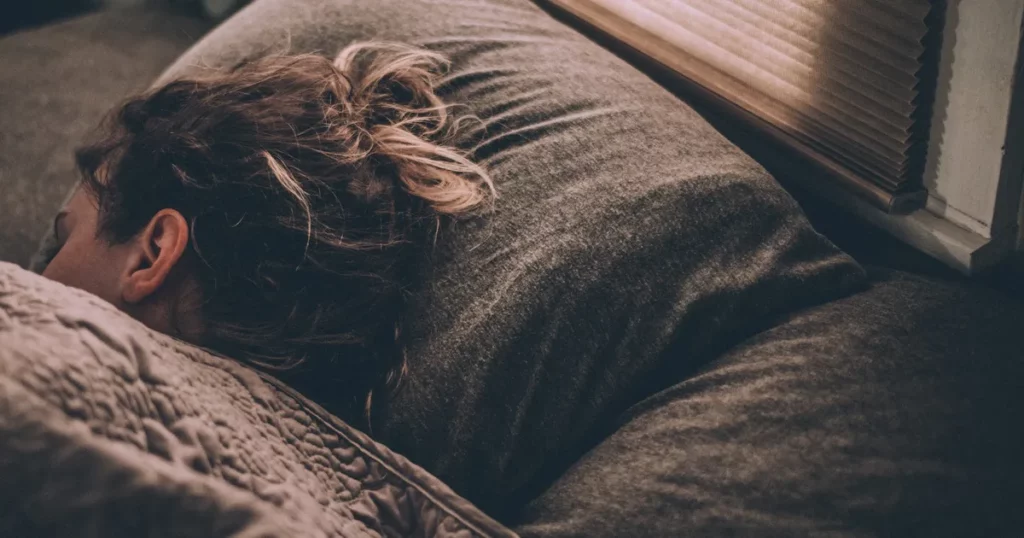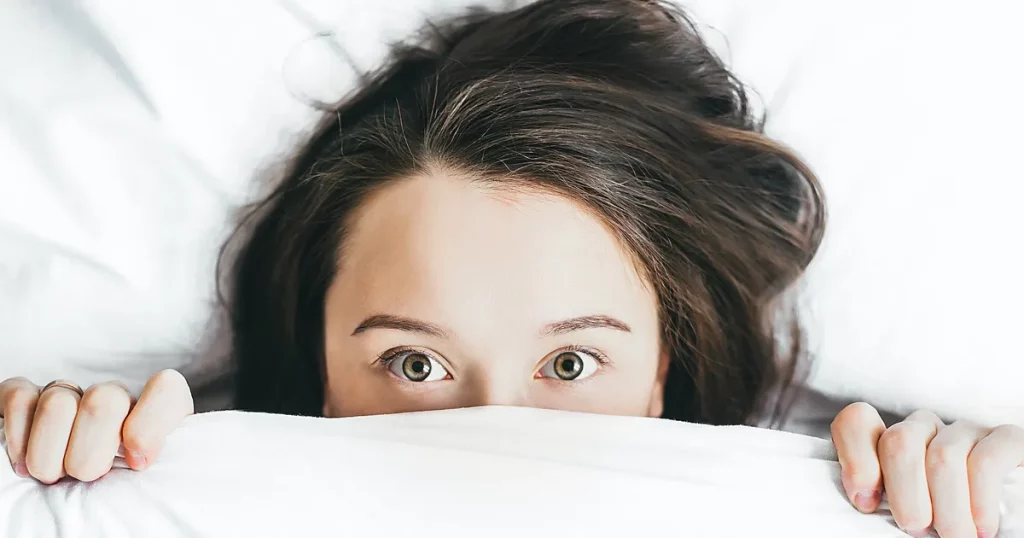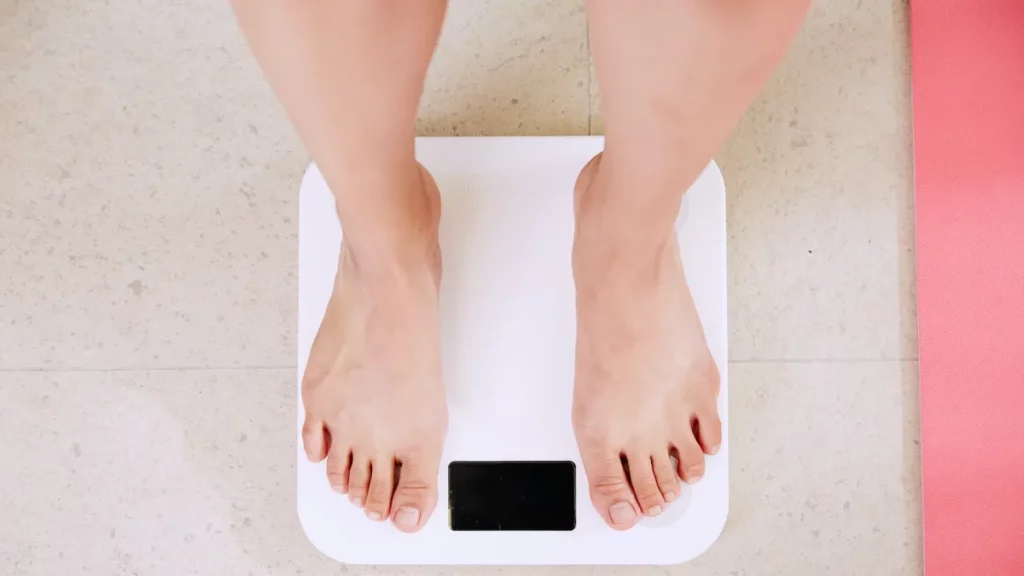Introduction
Experiencing night sweats can be a distressing and uncomfortable ordeal, leaving many individuals searching for answers. One key aspect to consider in understanding and managing night sweats is the role of lifestyle factors. In this article, we will delve into four lifestyle factors of night sweats, covering sleep, anxiety and stress, obesity, and tobacco use.
By exploring these factors, we aim to empower you with the knowledge necessary to address your nighttime discomfort and improve your overall well-being. Let’s take a closer look at each of these lifestyle factors and discover how they might be contributing to your night sweats.
🛌⚠️ Men: Night sweats can have many causes. Read out complete overview of the topic on the Causes of Night Sweats in Men: Triggers, Remedies, and FAQs
🛌⚠️ Women: Night sweats can have many causes. Read out complete overview of the topic on the Causes of Night Sweats in Women: Triggers, Remedies, and FAQs
Table of Contents
I. Overview of Lifestyle Factors Contributing to Night Sweats
A. Sleep Disorders and Night Sweats

Sleep disorders, such as sleep apnea and insomnia, can contribute to night sweats by disrupting the body’s temperature regulation during sleep. Sleep apnea, characterized by interrupted breathing during sleep, can cause fluctuations in body temperature and lead to night sweats. Insomnia, on the other hand, may increase stress and anxiety levels, which can also contribute to elevated body temperature and night sweats.
Learn more about sleep habits and night sweats.
B. Anxiety, Stress And Night Sweats

Anxiety and stress can lead to physiological responses, such as increased heart rate and body temperature, that contribute to night sweats. High levels of stress hormones, like cortisol, can interfere with the body’s temperature regulation and trigger excessive sweating during sleep. To better understand the relationship between anxiety, stress, and night sweats, visit the dedicated blog post on anxiety and stress.
Learn more about anxiety, stress, and night sweats.
C. Obesity And Night Sweats

Obesity is linked to an increased risk of night sweats due to the body’s difficulty in dissipating heat effectively. Excess body fat can act as an insulator, retaining heat and leading to a rise in core body temperature, which may trigger night sweats.
Learn more about the connection between obesity and night sweats.
D. Tobacco Use And Night Sweats

Tobacco use, particularly smoking, has been associated with night sweats due to the effect of nicotine on the body’s temperature regulation. Nicotine can cause blood vessels to constrict, impairing the body’s ability to dissipate heat and potentially leading to night sweats.
Learn More about the link between tobacco use and night sweats.
D. Diet And Night Sweats

The connection between diet and night sweats has been a topic of interest in recent years. Certain foods and beverages, such as spicy foods, caffeine, and alcohol, are known to trigger night sweats by increasing body temperature and stimulating the nervous system.
Learn more about the link between diet and night sweats.
II. Tips for Managing Night Sweats Related to Lifestyle Factors
A. Improving Sleep Quality
To get better sleep, try setting a consistent sleep schedule by going to bed and waking up at the same time every day. Make your bedroom a comfortable and inviting space with proper bedding, ideal temperature, and minimal noise and light. Avoid caffeine and electronic devices close to bedtime, as they can interfere with sleep. You can also practice relaxation techniques like deep breathing or meditation to help you unwind before bed.
B. Managing Anxiety and Stress
Find ways to relax and reduce stress in your life, such as practicing mindfulness techniques like meditation or yoga. Regular exercise can also help relieve stress and anxiety. Don’t hesitate to reach out to a therapist or counselor if you need professional guidance in managing stress and anxiety. Connecting with friends, family, or joining support groups can also provide the emotional support you need.
C. Maintaining a Healthy Weight
Eating a balanced diet that includes whole foods, fruits, vegetables, lean proteins, and healthy fats can help you maintain a healthy weight. Make sure to include regular physical activity in your routine, combining both cardiovascular and strength training exercises. Keep track of your progress and adjust your plan as needed to reach and maintain your ideal weight. If you need personalized guidance, consider consulting a healthcare professional or registered dietitian.
D. Tobacco Cessation
To quit tobacco, start by identifying your triggers and find strategies to cope with cravings. You can try engaging in physical activity or practicing relaxation techniques to manage cravings. Reach out to friends, family, or support groups for encouragement and shared experiences. If needed, consider using nicotine replacement therapy or prescription medications to assist in tobacco cessation. Don’t hesitate to consult a healthcare professional for personalized advice on quitting tobacco.
By following these practical tips and solutions, you can address the lifestyle factors contributing to night sweats. Remember that it’s essential to consult a healthcare professional for personalized recommendations and further guidance.
III. Frequently Asked Questions
Can better sleep reduce night sweats?
Better sleep can help reduce night sweats by improving overall health, reducing stress, and promoting hormonal balance, but it may not directly eliminate the underlying cause of night sweats.
What contributes to night sweats?
Factors that contribute to night sweats include hormonal imbalances, infections, certain medications, alcohol or drug consumption, sleep disorders, stress, anxiety, and underlying medical conditions such as cancer or hyperthyroidism.
Are night sweats due to high metabolism?
Night sweats can be due to high metabolism in some cases, such as with hyperthyroidism, where the body’s metabolic rate is elevated, leading to increased heat production and sweating. However, night sweats can also result from various other causes.
Conclusion
In summary, lifestyle factors play a significant role in the occurrence and severity of night sweats. Sleep quality, anxiety and stress levels, obesity, and tobacco use all contribute to this common yet often underestimated symptom, which can negatively impact sleep and overall well-being. By addressing and modifying these lifestyle factors, you can significantly improve your sleep quality, overall health, and regain control over your well-being.
Medical Disclaimer: This article is for informational purposes only and should not be considered professional medical advice. It is always recommended to consult with a healthcare professional before making any changes to your treatment plan, diet, or lifestyle. StopTheNightSweats.com is not responsible for any actions taken as a result of the information provided in this article.
